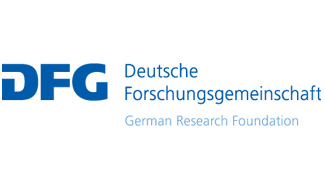RiD: Bicycle Traffic Behavior in Germany
Title: RiD: Bicycle Traffic Behavior in Germany
Project duration: April 2023 – September 2026
Research Area: Traffic Sciences, Route Choice Modelling, Machine Learning, Data Science

Project Description
Within the DFG project RiD, cyclists’ riding behavior and route choice throughout Germany are investigated. The aim is to gain a deeper understanding of the factors that influence cycling behavior, thereby contributing to the promotion of cycling and, thus also, to a more climate-friendly transportation system. As cycling behavior can vary greatly from one municipality to another, city types are to be defined, and models are to be trained for each city type. In this way, it should be possible to represent and analyze every municipality in Germany using the models developed in the project.
For the project, a data set from the campaign “City Cycling” (German: “Stadtradeln”) is used, which contains GPS recordings of cycling trips from over 2,700 German municipalities. This data set is used to model and analyze cycling behavior and route choice.

Aims
- Analysis of spatial and city-specific variables on the cycling behavior of cyclists in Germany
- Investigation of variables on the route choice of cyclists in Germany with a focus on route-, person- and city-specific characteristics
- Application of several methods of classical statistics and machine learning for these analyses, as well as development and application of a methodological approach to compare the results of all methods
Problem
Cycling behavior and influencing factors of the route choice differ significantly from one municipality to another. Therefore, every existing result of such analyses only holds for the specific city or municipality within the respective study. The RiD project addresses this problem and aims to gain insights into cycling behavior throughout Germany by modeling cities and city types.
Technology
The “City Cycling” data is used to train several statistical and machine learning models, e.g., multinomial logit, deep neural networks, support vector machines, and random forest to analyze cyclists’ route choice and behavior. Furthermore, a cluster analysis will be conducted to validate the city types. All these analyses are mainly performed using Python.
Team
Lead

Dr. Iryna Okhrin
TUD Dresden University of Technology
Center for Interdisciplinary Digital Sciences (CIDS)
Team Members
- Katrin Lubashevsky
Partners
Links


